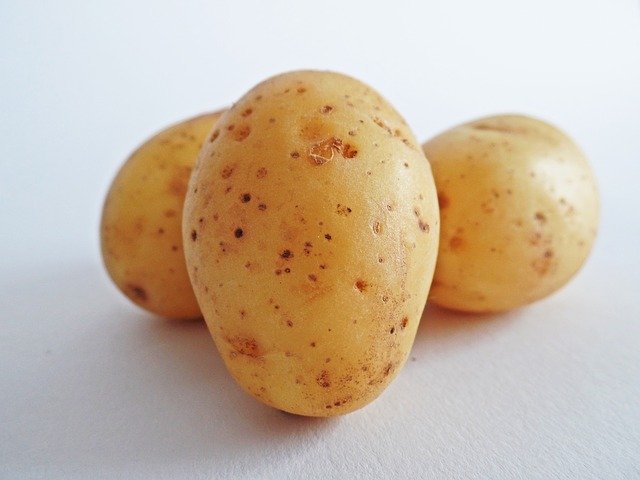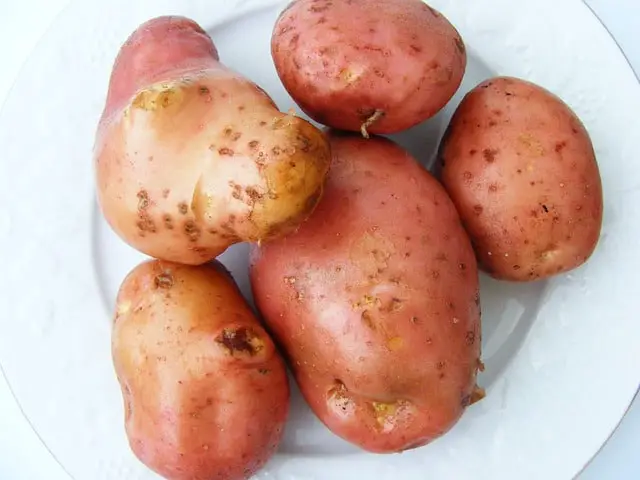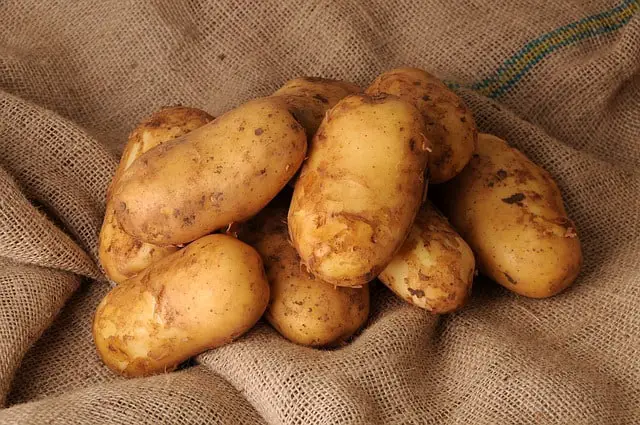Part of prepping food for a meal is making sure everything will keep as fresh as possible. Potatoes are known to discolor before you get a chance to cook and serve them.
Notice how a apple begins to turn brown before you finish eating it?
Here is a food preparation guide for potatoes and how to stop them from turning brown. Don’t worry we got you covered on this. The next time you’re making potatoes this won’t be a issue.
Will Olive Oil Keep Potatoes From Turning Brown?
Potatoes can be soaked or coated in olive oil to prevent them from turning brown. Olive oil and water both work for slowing down the oxidation. Although water works better as it helps to remove some of the starches from the potato.
I found out some helpful tips on how to slow oxidation. All of them are easy to apply and very effective.
Why Do Potatoes Turn Brown?
Potatoes, fruits, vegetables and plants all contain a similar enzyme. The enzyme is polyphenol oxidase, also goes by the name tyrosinase.
When you slice or cut into a potato the enzyme begins to react with the oxygen. This is known as oxidation and part of the reaction involves browning of the potato.
The skin on a potato does a great job of slowing this process down. Once its removed by either peeling or cutting into the potato. Then the browning will begin quickly.
It is important to note that although oxidation makes a fruit or vegetable look unappealing. The taste is not affected and the potato remains safe to eat. Most of the time cooking the potato gets rid of any discoloration.
Keeping potatoes looking fresh by slowing this reaction can be done. Once you know what works the best.

Prevention
While it is hard to completely stop the browning. You can slow the reaction down enough keep the potatoes color from changing until you are ready to cook.
Prevention starts by limiting the exposure of oxygen to the open slices. Depriving the enzyme of any oxygen, is the most effective way to prevent browning.
Besides the most common method to preserve potatoes. A few extra tips have been known to work as well. First here is the easiest way to prevent potatoes from turning brown.
Olive Oil
Olive oil can work and will slow down the oxidation very well. I think the main reason this isn’t done more is because its expensive.
Soaking the potatoes in water is easier and a lot cheaper.
You may be wanting to use olive oil instead so you can skip a step. Instead of soaking them in water first, drying the potatoes and then coating them with olive oil. Why not just start with the olive oil?
The easiest way to use olive oil instead of water is to use a air tight bag. Place the sliced up potatoes into a plastic bag. Pour in enough olive oil to cover each slice.
Then seal up the bag squeezing out any extra air. Place in the refrigerator for up to 24 hours.
Cold Water
Using cold water is the most common method to prevent browning. The easiest way is to soak them in a bowl of ice water.
Have the bowl of ice water ready to go before you slice the potatoes. That way you can toss them into the water right away. This gives it less of a chance to start oxidizing.
You can soak the potatoes overnight if you want to slice them ahead of time. Place them in the refrigerator if you plan to do this.
The cold water helps to preserve the potatoes and keep them from breaking down. You don’t want them to start to become mushy before you cook them. Especially if they aren’t going to be used for mashed potatoes.
One extra step to take is to rinse the potatoes of any excess starch. Starches tend to absorb moisture. Depending on the style of potato you want to cook. Removing excess starches help to make a crispier potato.
Lower The PH
When you plan to soak potatoes for a extended period of time. Say for more than 8 hours. It doesn’t hurt to add in some lemon juice or vinegar to the water or olive oil.
The idea is to add some acidity to the liquid you are soaking the potatoes in. Lowering the PH level means to make something more acidic.
Oxidation is limited when the liquid becomes slightly more acidic. You don’t want to add too much where it distorts the flavor.
Use one tablespoon for every gallon of water you use, same goes with olive oil. Although you probably aren’t going to use a whole gallon.
Just add in a teaspoon of vinegar or lemon juice for every half gallon. Enough where you can’t really smell the vinegar, should work.
The citric acid and vitamin c both work to inhibit the enzyme from turning the potato brown. Which is why lemon juice might be a better choice than vinegar.
This same method is used to prevent guacamole from turning brown as well.
Add Salt
Soaking potatoes in salt water is a technique that can lead to a faster cooking, flavorful and more crispy potato.
Besides those benefits the salt water actually slows the browning. The science behind this is complex. In simple terms it deactivates the cells in the enzymes.
Salt will actually draw out a lot of water inside the potato, this is why is helps to make them cook faster.
So it doesn’t hurt to add in a small amount of salt into the water or olive oil.
Use Glass When Available
Although I couldn’t find much information about this, I have read about it on many different websites.
They say to not place potatoes in metal bowls or on top of metal pans. As iron and aluminum react with the potato. This can potentially speed up the browning process.
Instead use glass bowls or baking pans when possible.

How Long To Soak?
Depending on the size of the potato cut, you shouldn’t soak longer than a 24 hour period. Unless it is a whole potato then you can soak for up to 2 days.
Smaller cuts do not need to be soaked for very long and shredded potatoes shouldn’t be soaked at all.
Small cuts can be soaked while you are cooking the other foods, one to two hours tops. Medium cuts 8 to 12 hours and larger ones can be soaked overnight.
The minimum amount of time to soak potatoes is 30 minutes.
Browning and black spots are going to be more noticeable on larger pieces of potato.
Mashed potatoes work the best for longer periods of soaking. As you are going to be adding in milk anyways, so its okay for them to become softer.
Read More: Best Way To Wash Potatoes
Are Brown Potatoes Safe To Eat?
As mentioned the potatoes are safe to eat, even after they have turned brown or black. Spoiling has not occurred and the brown spots are only on the surface.
Cooking will make a lot of the discoloring disappear as it becomes less noticeable.
How To Tell A Potato Has Gone Bad
Source:
https://idahopotato.com/dr-potato/how-to-keep-idaho-potatoes-from-turning-brown-after-boiling

